Find Help
More Items From Ergsy search
-
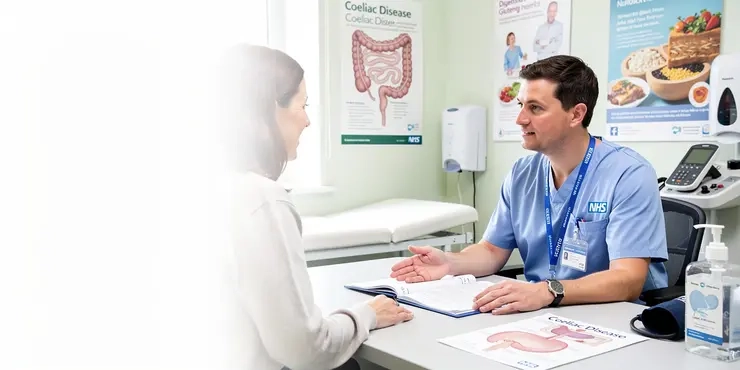
Coeliac Disease: Session 1: What is Coeliac Disease?
Relevance: 100%
-
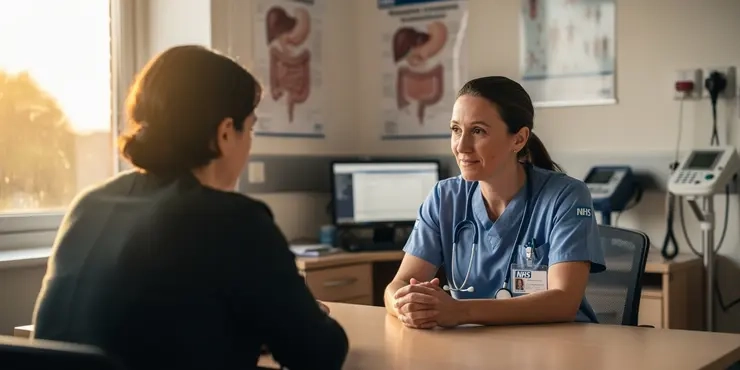
Coeliac disease
Relevance: 100%
-
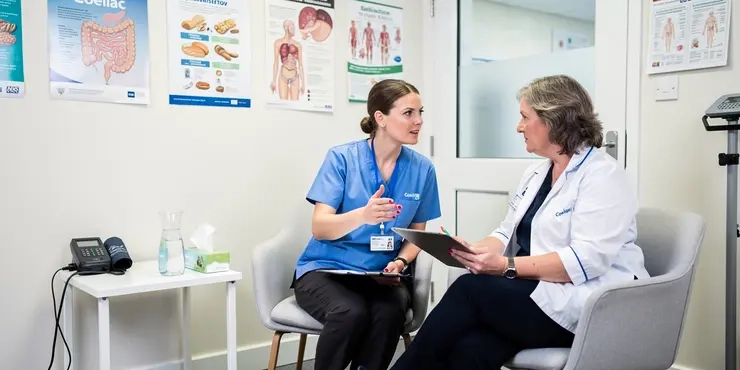
Causes of coeliac disease
Relevance: 95%
-
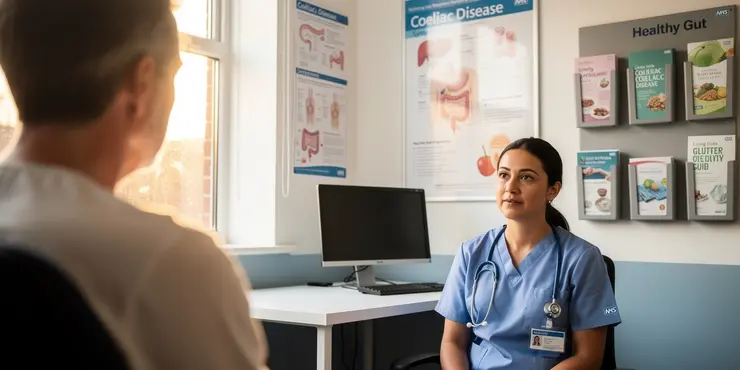
Symptoms of coeliac disease
Relevance: 94%
-
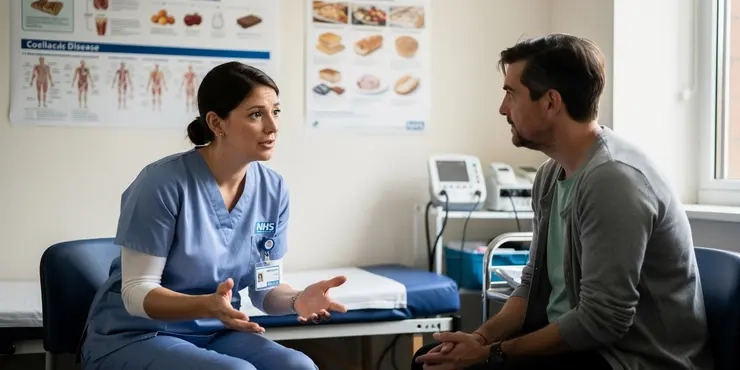
NHSGGC - What is Coeliac Disease?
Relevance: 92%
-

Living Well with Coeliac Disease
Relevance: 90%
-
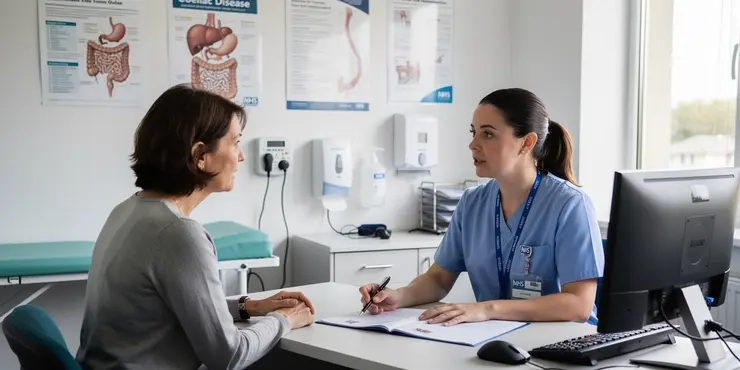
Diagnosing Coeliac Disease Updated 2021
Relevance: 88%
-
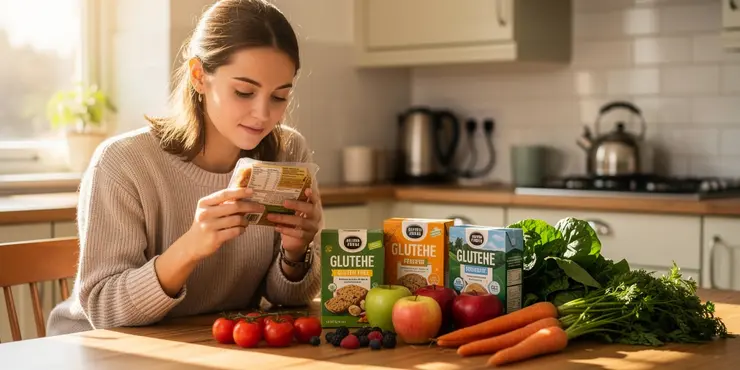
Coeliac Disease: The gluten free diet
Relevance: 86%
-
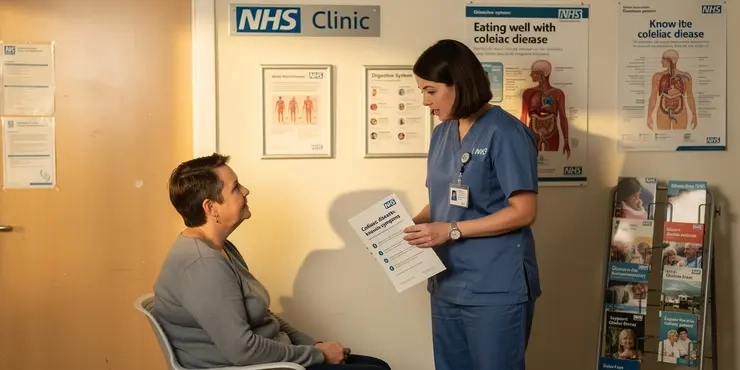
Coeliac Disease Explained - Gluten Sensitivity - A to Z of the NHS - Dr Gill
Relevance: 81%
-
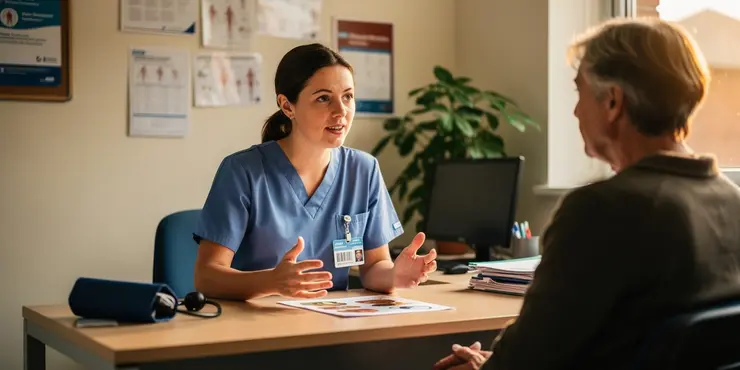
What is the best diet for Crohn’s disease?
Relevance: 30%
-
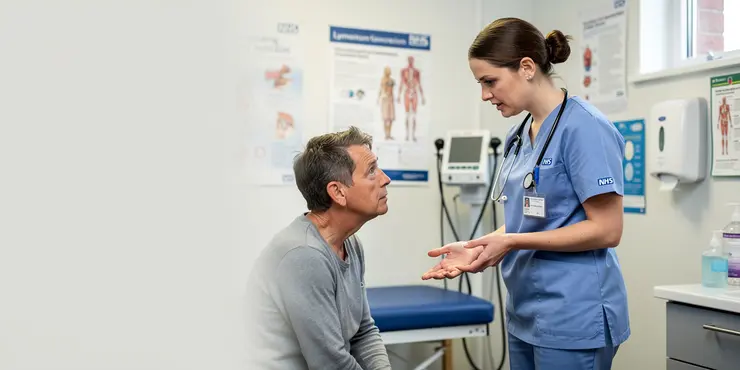
What is Lyme Disease?
Relevance: 28%
-

Is Huntington's disease fatal?
Relevance: 28%
-
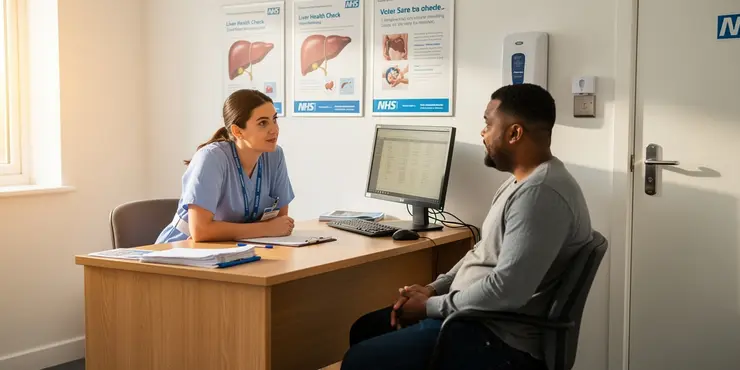
Liver disease | NHS
Relevance: 28%
-
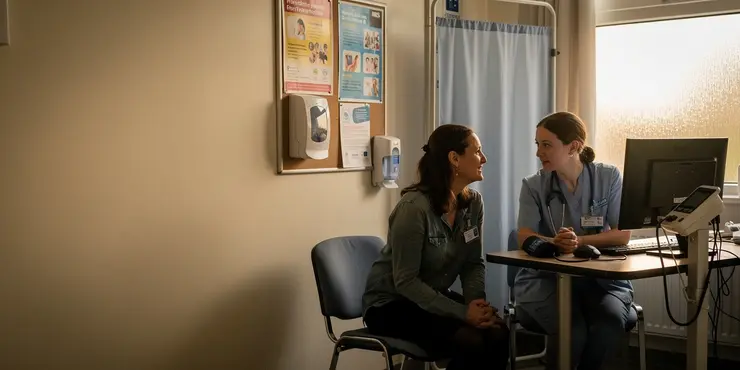
Is Crohn's disease contagious?
Relevance: 28%
-
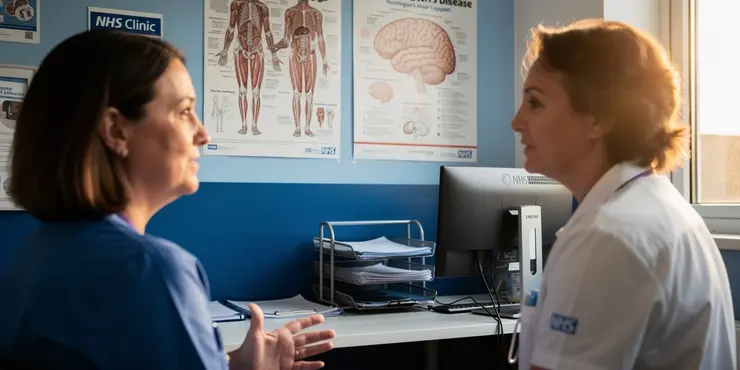
What is Huntington's disease?
Relevance: 28%
-
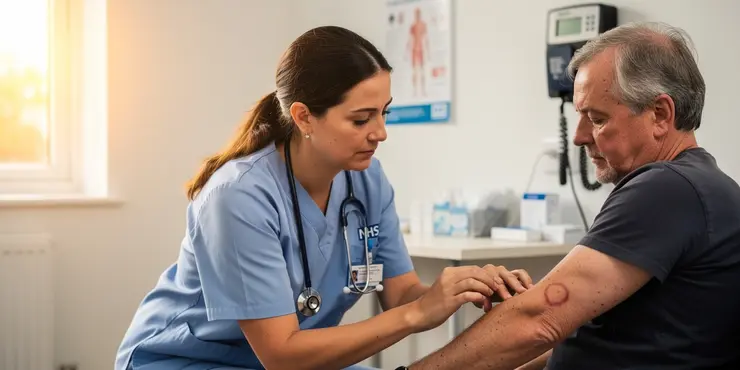
Lyme disease: What is it?
Relevance: 28%
-
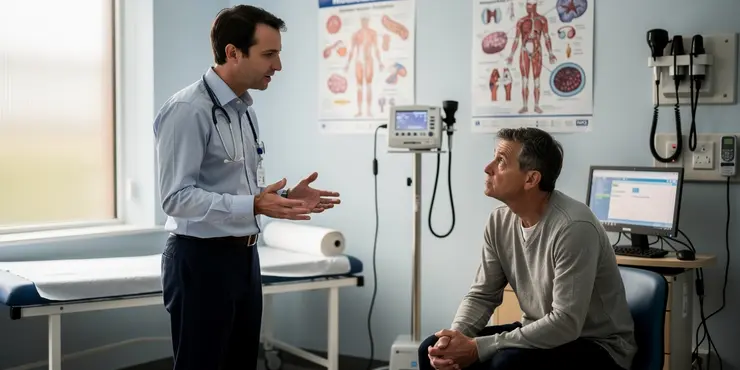
What is Mitochondrial disease?
Relevance: 28%
-
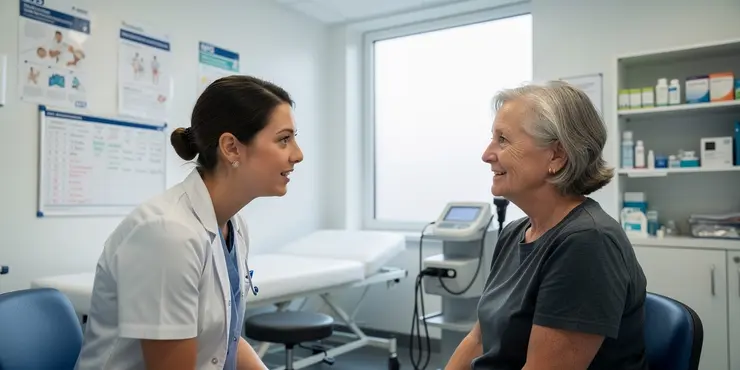
Is there a cure for Crohn's disease?
Relevance: 28%
-
What is Parkinson's disease?
Relevance: 28%
-
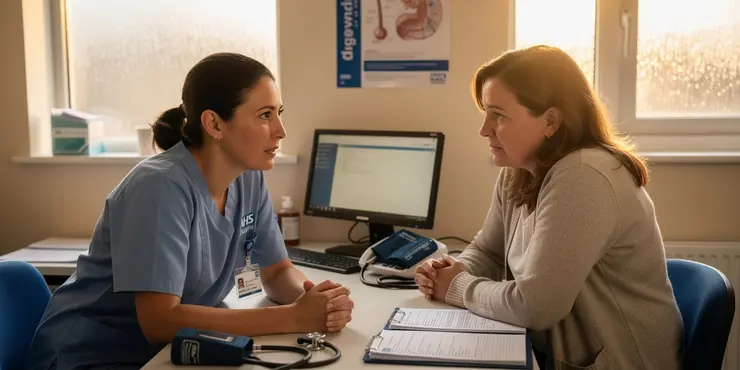
Is there a vaccine for Lyme disease?
Relevance: 28%
-
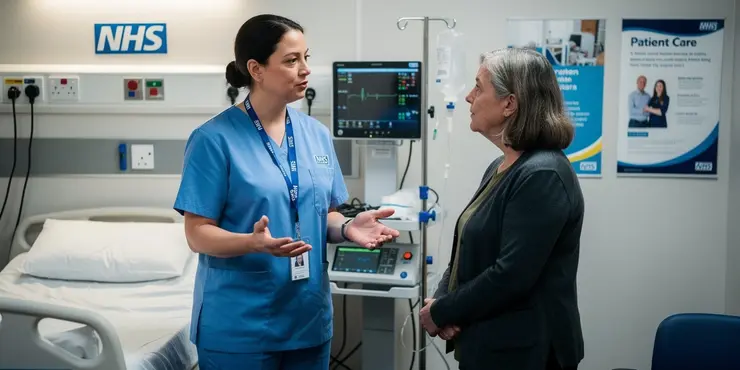
Is flesh-eating disease contagious?
Relevance: 28%
-
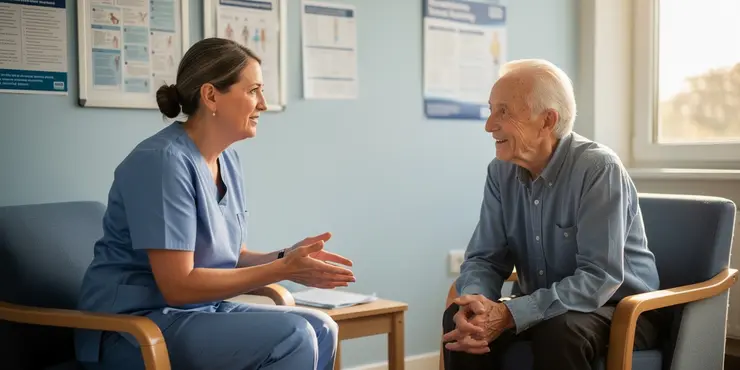
What is Alzheimer's disease?
Relevance: 27%
-
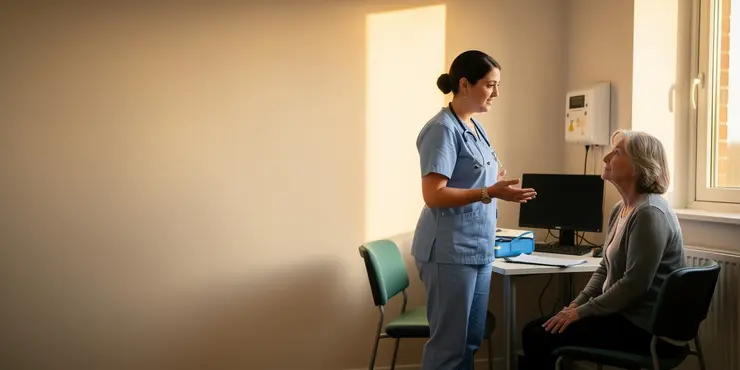
What causes Crohn's disease?
Relevance: 27%
-
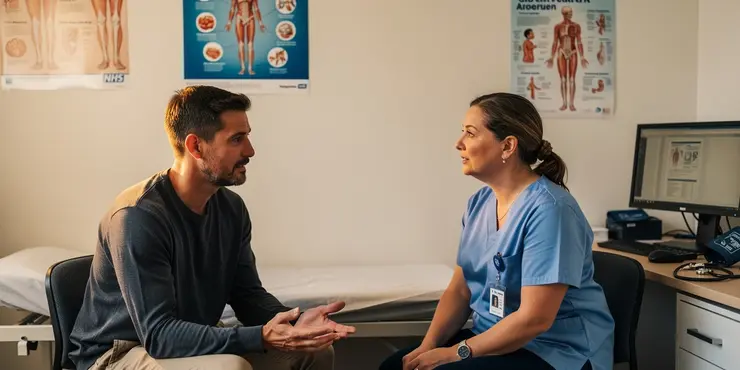
What causes Huntington's disease?
Relevance: 27%
-
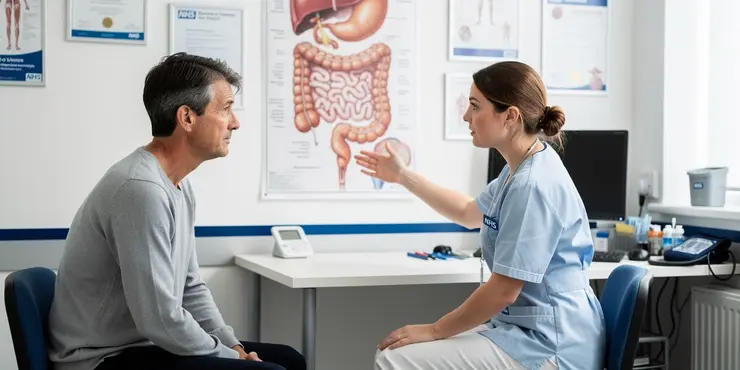
How is Crohn's disease diagnosed?
Relevance: 27%
-
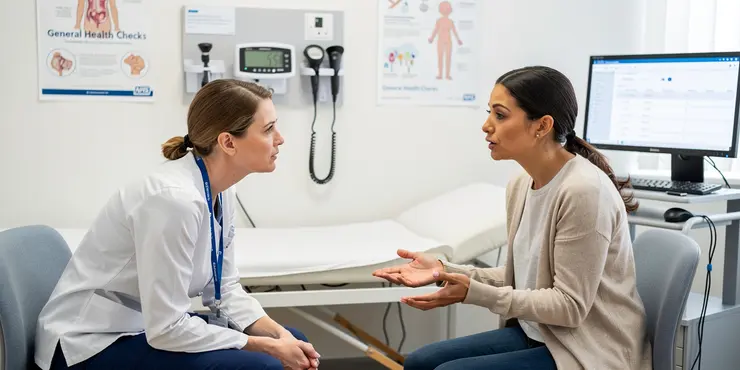
Can Lyme disease be treated?
Relevance: 27%
-
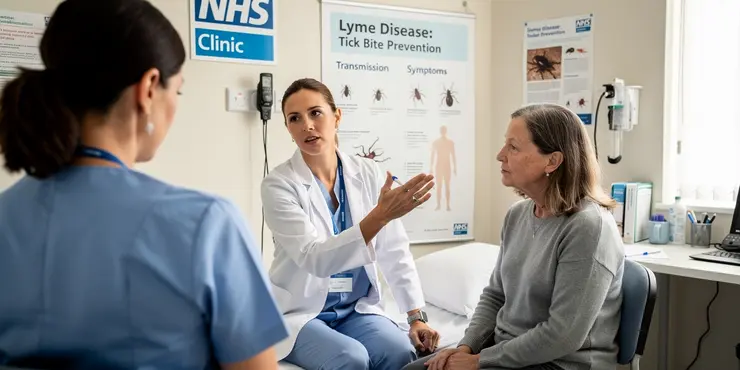
How is Lyme disease transmitted?
Relevance: 27%
-
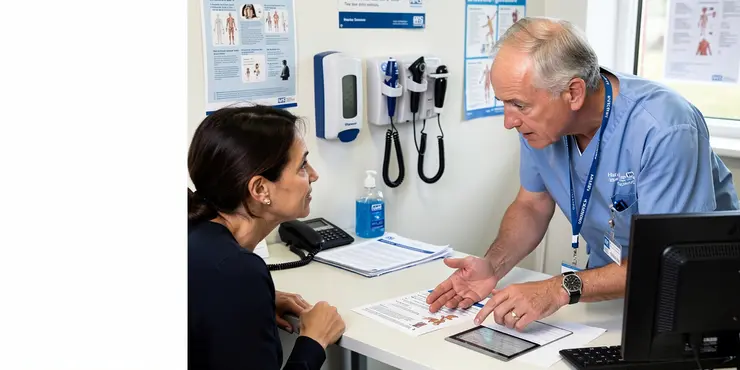
What is a flesh-eating disease?
Relevance: 27%
-

Can Huntington's disease be prevented?
Relevance: 27%
-
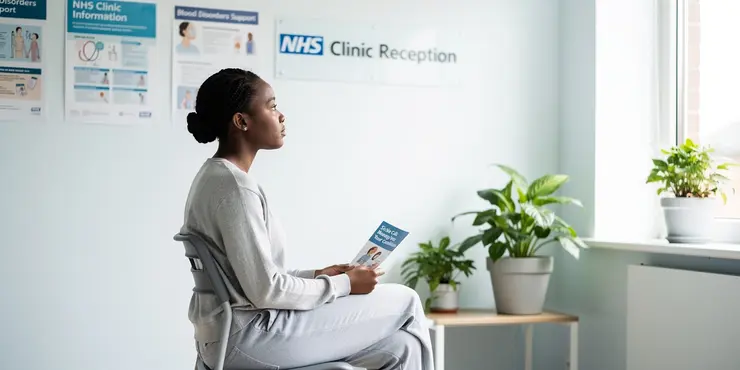
What is sickle cell disease?
Relevance: 27%
-
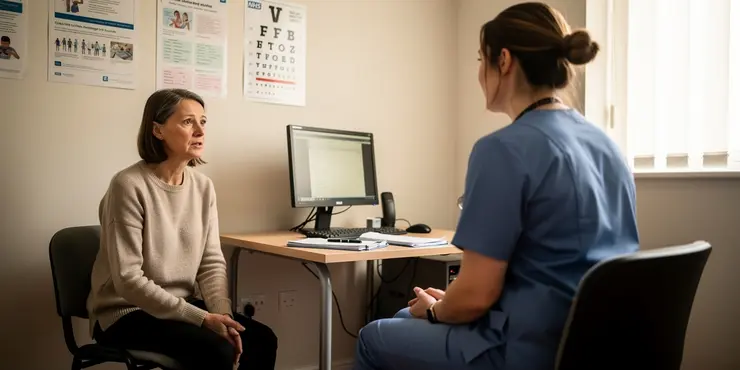
What are the symptoms of Huntington's disease?
Relevance: 27%
-
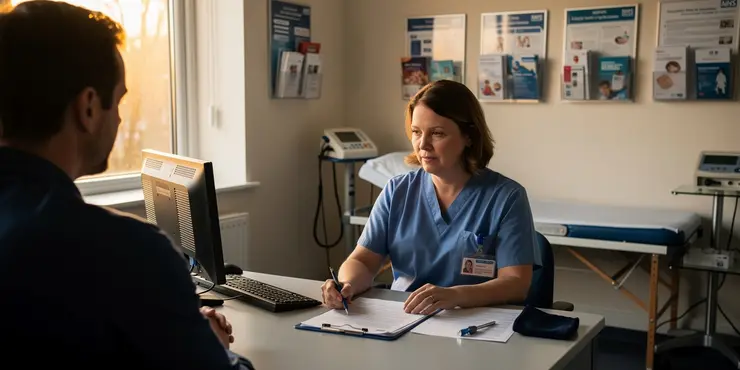
How is Huntington's disease diagnosed?
Relevance: 27%
-
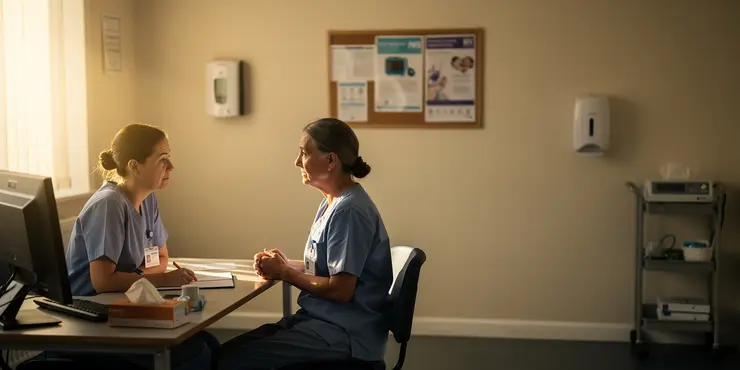
Can Huntington's disease be cured?
Relevance: 27%
-
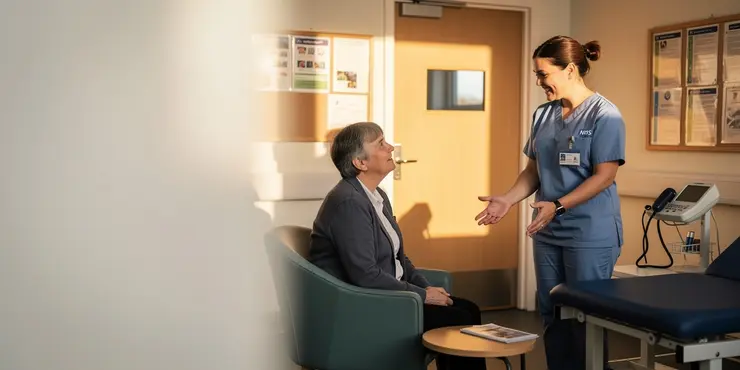
Introduction to Sickle cell disease
Relevance: 26%
-
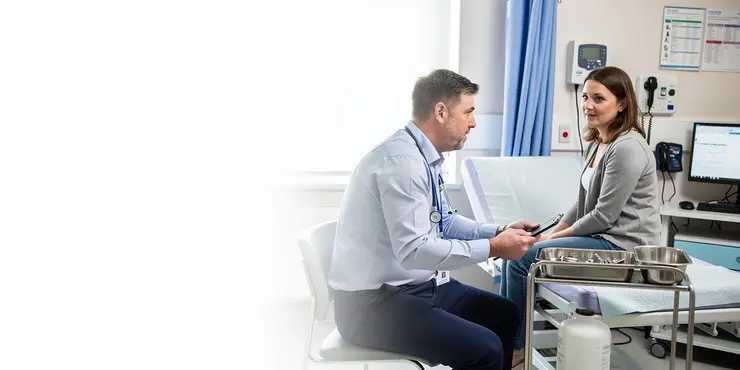
Is surgery necessary for Crohn's disease?
Relevance: 26%
-
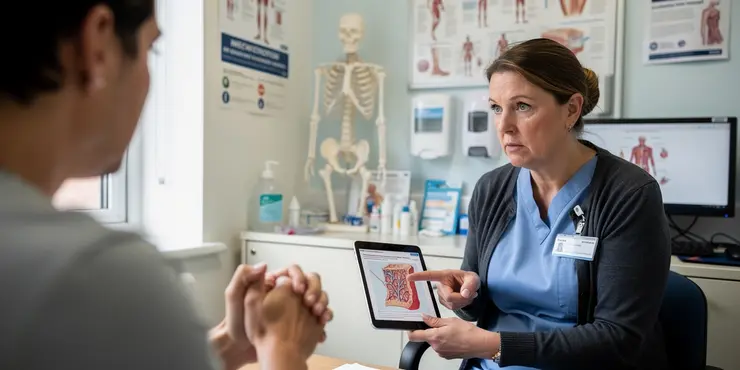
What is a flesh eating disease?
Relevance: 26%
-
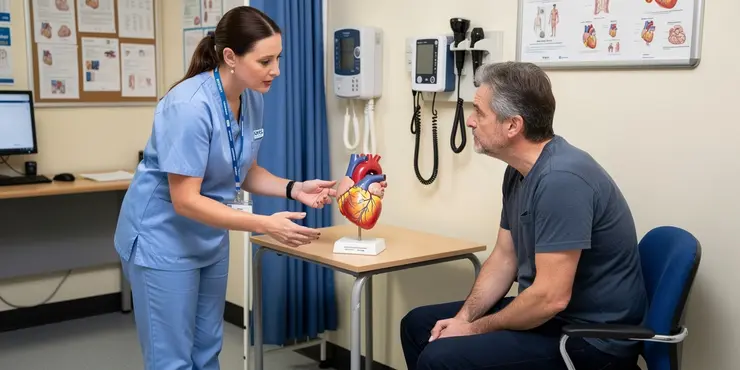
What is heart valve disease?
Relevance: 26%
-
Is motor neurone disease hereditary?
Relevance: 26%
-
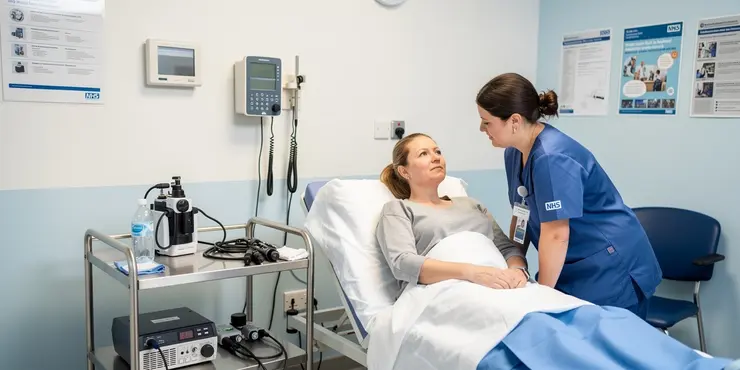
Bournemouth Digestive Diseases Centre: Endoscopy Procedure
Relevance: 26%
-
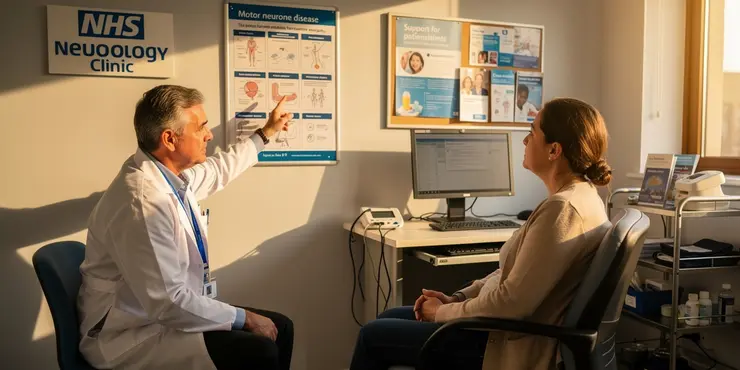
Is there a cure for motor neurone disease?
Relevance: 26%
What is Coeliac Disease?
Understanding Coeliac Disease
Coeliac disease is a lifelong autoimmune condition where the body's immune system reacts negatively to gluten. Gluten is a protein found in wheat, barley, and rye. When individuals with coeliac disease consume gluten, their immune system attacks the small intestine's lining, leading to damage and an inability to properly absorb nutrients from food.
Symptoms of Coeliac Disease
Symptoms of coeliac disease can vary widely among individuals and can affect multiple systems in the body. Common symptoms include:
- Digestive issues such as diarrhoea, constipation, and bloating
- Fatigue and weakness
- Unintentional weight loss
- Anaemia
- Bone and joint pain
- Skin rashes, such as dermatitis herpetiformis
Diagnosis of Coeliac Disease
To diagnose coeliac disease, a combination of blood tests and a biopsy of the small intestine is typically used. Blood tests check for specific antibodies that are usually elevated in individuals with coeliac disease. If blood tests suggest coeliac disease, a biopsy is performed to confirm the diagnosis by examining the small intestine's tissue for damage caused by gluten consumption.
Treatment and Management
The primary treatment for coeliac disease is a strict, lifelong gluten-free diet. This diet helps to manage symptoms and prevent further damage to the small intestine. People with coeliac disease should avoid foods containing wheat, barley, rye, and derivatives of these grains. Many foods are naturally gluten-free, and there are many gluten-free alternatives available in supermarkets and restaurants.
Support and Resources
The NHS Greater Glasgow and Clyde (NHSGGC) offers various resources and support for individuals diagnosed with coeliac disease. Dietitians can provide guidance on maintaining a balanced and varied gluten-free diet. Additionally, there are support groups and charities such as Coeliac UK, which provide further information, advice, and community support.
What is Coeliac Disease?
Understanding Coeliac Disease
Coeliac disease is when your body doesn't like gluten. Gluten is in foods like bread and pasta. If people with coeliac disease eat gluten, it hurts their stomach and makes it hard to use food properly.
Symptoms of Coeliac Disease
People with coeliac disease can feel different. Here are some common signs:
- Tummy problems like diarrhea, hard stools, or feeling gassy
- Feeling very tired or weak
- Losing weight without trying
- Low red blood cells (anaemia)
- Aches in bones and joints
- Skin rashes
Diagnosis of Coeliac Disease
Doctors use blood tests and a small piece of your stomach to check for coeliac disease. Blood tests look for certain markers. If the tests say you might have coeliac disease, the doctor will take a close look at your stomach to be sure.
Treatment and Management
The best way to feel better is to stop eating gluten. This means no foods with wheat, barley, or rye. Lots of foods don't have gluten, and you can find gluten-free foods in stores and restaurants.
Support and Resources
If you have coeliac disease, there is help. The NHS Greater Glasgow and Clyde (NHSGGC) can offer support. Dietitians help you eat right. You can also find support from groups like Coeliac UK. They give advice and have people you can talk to.
Frequently Asked Questions
What is Coeliac Disease?
Coeliac Disease is an autoimmune condition where the ingestion of gluten leads to damage in the small intestine. It affects the absorption of nutrients from food.
What are the symptoms of Coeliac Disease?
Symptoms include diarrhoea, abdominal pain, bloating, fatigue, and weight loss, though they can vary widely among individuals.
How is Coeliac Disease diagnosed?
Diagnosis usually involves blood tests to detect specific antibodies and is confirmed by a biopsy of the small intestine.
What foods must be avoided with Coeliac Disease?
Foods containing gluten, such as wheat, barley, and rye, must be avoided.
Is there a cure for Coeliac Disease?
There is no cure for Coeliac Disease, but it can be managed effectively by adhering to a strict gluten-free diet.
Can children have Coeliac Disease?
Yes, children can develop Coeliac Disease. Symptoms in children may include growth issues, irritability, and digestive problems.
Can Coeliac Disease develop later in life?
Yes, Coeliac Disease can develop at any age.
Is Coeliac Disease genetic?
Coeliac Disease has a genetic component and can run in families. First-degree relatives of a person with Coeliac Disease have a higher risk.
What is the treatment for Coeliac Disease?
The only treatment is a lifelong gluten-free diet, which helps to manage symptoms and prevent intestinal damage.
What happens if a person with Coeliac Disease eats gluten?
Ingesting gluten can cause symptoms to return and can lead to long-term intestinal damage and other health complications.
Can gluten-free foods be contaminated with gluten?
Yes, cross-contamination can occur if gluten-free foods come into contact with gluten-containing foods during preparation or processing.
Are oats safe for people with Coeliac Disease?
Pure, uncontaminated oats are generally safe, but it's important to ensure they have not been contaminated with gluten during processing.
What support is available for people with Coeliac Disease?
Support includes dietitian services, Coeliac UK resources, and support groups which provide information, recipes, and emotional support.
Can Coeliac Disease lead to other health issues?
Untreated Coeliac Disease can lead to complications like osteoporosis, infertility, neurological conditions, and an increased risk of certain cancers.
Can people with Coeliac Disease eat out safely?
Yes, but they need to ensure that the restaurant understands gluten-free requirements and practices safe food handling to avoid cross-contamination.
What is Coeliac Disease?
Coeliac disease is when your body does not like gluten. Gluten is found in foods like bread, pasta, and cakes. If you have coeliac disease and eat gluten, it can make your belly hurt and give you bad feelings. It can also stop your body from taking in the good stuff from food.
What to Do:
- Eat foods that do not have gluten.
- Look for special gluten-free foods in the shop.
- Ask a grown-up or doctor if you are not sure what to eat.
Helpful Tools:
- Use apps that help you find gluten-free foods.
- Join a group to talk to other people with coeliac disease.
Coeliac Disease is when your body reacts badly to gluten. Gluten is in some foods. It can hurt the small intestine, which helps your body take in good things from food.
What are the signs of Coeliac Disease?
Coeliac Disease can make people feel unwell. Here are some things to look out for:
- Pain in the belly
- Feeling very tired
- Diarrhea (runny poo)
- Feeling sick (nausea)
- Feeling bloated (your tummy feels full and bigger)
- Weight loss without trying
- Skin rash
If you think you have Coeliac Disease, talk to a doctor. It can help to keep a diary of how you feel each day. Also, using pictures and charts can make it easier to track symptoms.
Signs you might notice are tummy pain, runny poo, feeling full of air, feeling very tired, and losing weight. But these signs can be different for each person.
How do doctors find out if someone has Coeliac Disease?
To find out what is wrong, doctors do some blood tests to look for special things called antibodies. Then, they might take a tiny piece of your small intestine to look at closely. This helps them know for sure what is going on.
What foods should you stay away from if you have Coeliac Disease?
If you have Coeliac Disease, you need to avoid foods with gluten. Gluten is in:
- Bread
- Cakes
- Pasta
- Cereal
Look for foods labeled "gluten-free." These are safe to eat.
If you need help, you can use apps or talk to a doctor.
Stay away from foods that have gluten. This means no wheat, barley, or rye.
Can Coeliac Disease be Cured?
No, there is no cure for Coeliac Disease. But you can feel better by not eating foods with gluten.
Here are some tips to help you:
- Always check food labels to make sure they don’t have gluten.
- Ask a doctor for advice and support.
- Join groups where you can talk to others with Coeliac Disease.
Coeliac Disease cannot be cured, but you can feel better by eating foods that do not have gluten in them.
Can children get sick from eating foods with gluten?
Yes, some children can get sick from eating foods that have gluten in them. Gluten is a protein found in foods like bread, pasta, and cereal.
If kids have a problem with gluten, it's called Coeliac Disease. Here are some signs that might mean a child has Coeliac Disease:
- Stomach pain
- Diarrhea or constipation
- Feeling very tired
- Not growing as expected
If you think a child might have Coeliac Disease, it's important to see a doctor. They can do tests to help find out. A good way to help kids with Coeliac Disease is to eat foods without gluten. Look for foods marked "gluten-free" at the store.
Yes, children can get Coeliac Disease. Signs in children can be problems growing, feeling grumpy, and tummy aches.
If you find reading hard, try using tools like text-to-speech apps. They read the words out loud for you.
Can you get Coeliac Disease when you are older?
Yes, you can get Coeliac Disease at any age.
Is Coeliac Disease genetic?
Coeliac Disease is a problem that can happen in families. This means if someone in your family has it, you might get it too.
If you think you might have Coeliac Disease, tell your doctor. They can do tests to check.
Here are some things to help you understand:
- Use picture cards: Draw or find pictures to show how Coeliac Disease works.
- Talk to someone who knows about Coeliac Disease, like a nurse.
- Use simple words when talking about it.
Coeliac Disease can be in your genes. This means it can be in families. If someone in your family has Coeliac Disease, you have a higher chance of getting it too.
How do you treat Coeliac Disease?
The only way to help is to eat food that does not have gluten. You need to do this all the time, for your whole life. This helps you feel better and stops damage to your insides.
What happens if someone with Coeliac Disease eats gluten?
If someone with Coeliac Disease eats gluten, it can make them very sick.
Their tummy might hurt, and they could feel tired.
Gluten is found in foods like bread, pasta, and cakes.
People with Coeliac Disease should not eat gluten.
If they need help, they can use apps or talk to a doctor.
Eating gluten can make symptoms come back. It can also hurt the intestines over time and cause other health problems.
Can gluten-free foods get gluten in them?
Sometimes, foods that say "gluten-free" can still get gluten in them by accident. This can happen if they are made or cooked near foods that have gluten.
To help stay safe, try these tips:
- Check food labels carefully to make sure they say "gluten-free."
- Use different cutting boards and utensils for gluten-free and regular foods.
- Ask your family or friends to help you check for gluten at home.
Using these ideas can help you avoid gluten and stay healthy!
Yes, gluten-free food can get mixed with food that has gluten. This can happen when cooking or making the food.
Can people with Coeliac Disease eat oats?
It can be hard for people with Coeliac Disease to eat some foods. But what about oats?
Most people with Coeliac Disease can eat oats. But they need to make sure the oats are gluten-free. Gluten is something that can make them feel sick.
Here is what you can do to be safe:
- Look for oats that say "gluten-free" on the box.
- Talk to your doctor before trying oats.
- Keep a journal of how you feel after eating oats.
If you feel sick after eating oats, stop eating them and talk to your doctor.
Plain oats are usually safe to eat. But we need to make sure they do not get mixed up with gluten when they are made.
What help can people with Coeliac Disease get?
People with Coeliac Disease can get help in many ways:
- Doctors and Nurses: They can tell you what foods to eat and what to avoid.
- Dietitians: They can make a food plan for you. This can help you stay healthy.
- Support Groups: You can talk to other people with Coeliac Disease. You can share tips and feel supported.
- Gluten-Free Food: Look for foods that say "gluten-free" on the packet. This means they are safe to eat.
- Online Resources: There are websites and apps that can help you find gluten-free foods and recipes.
Help includes seeing a food expert, using Coeliac UK stuff, and joining support groups. These groups give tips, recipes, and help with feelings.
Can Coeliac Disease cause other health problems?
People with Coeliac Disease must avoid gluten. Gluten is found in foods like bread, pasta, and cakes. If they eat gluten, it can harm their tummy and body.
If someone with Coeliac Disease keeps eating gluten, they might get other health problems. This can include weak bones, tiredness, and feeling sad.
To stay healthy, it's important to eat gluten-free foods. It can help to use a food diary to remember what to eat. Also, it's good to talk with a doctor or a dietitian. They can give helpful advice.
If Coeliac Disease is not treated, it can cause other health problems. These include weak bones, trouble having babies, problems with the brain, and a higher chance of getting some types of cancer.
People with reading difficulties can use tools like text-to-speech software to hear the text read out loud, or colored overlays to help read more easily.
Can people with Coeliac Disease eat out safely?
Coeliac Disease is a condition where some people can't eat foods with gluten. Gluten is in foods like bread, pasta, and cakes.
People with Coeliac Disease can eat out at restaurants safely. They just need to be careful and plan ahead.
Here are some tips to help:
- Look for restaurants that have gluten-free options.
- Call the restaurant before you go and ask if they can make gluten-free food.
- Tell the waiter that you need gluten-free food because you have Coeliac Disease.
- Use apps or websites that list safe places to eat for people with Coeliac Disease.
Yes, they can, but they must make sure the restaurant knows about serving food that is safe to eat without gluten. The restaurant should also be careful when making the food to stop any mix-up with other foods.
Useful Links
This website offers general information and is not a substitute for professional advice.
Always seek guidance from qualified professionals.
If you have any medical concerns or need urgent help, contact a healthcare professional or emergency services immediately.
Some of this content was generated with AI assistance. We’ve done our best to keep it accurate, helpful, and human-friendly.
- Ergsy carfully checks the information in the videos we provide here.
- Videos shown by Youtube after a video has completed, have NOT been reviewed by ERGSY.
- To view, click the arrow in centre of video.
- Most of the videos you find here will have subtitles and/or closed captions available.
- You may need to turn these on, and choose your preferred language.
- Go to the video you'd like to watch.
- If closed captions (CC) are available, settings will be visible on the bottom right of the video player.
- To turn on Captions, click settings .
- To turn off Captions, click settings again.
More Items From Ergsy search
-

Coeliac Disease: Session 1: What is Coeliac Disease?
Relevance: 100%
-

Coeliac disease
Relevance: 100%
-

Causes of coeliac disease
Relevance: 95%
-

Symptoms of coeliac disease
Relevance: 94%
-

NHSGGC - What is Coeliac Disease?
Relevance: 92%
-

Living Well with Coeliac Disease
Relevance: 90%
-

Diagnosing Coeliac Disease Updated 2021
Relevance: 88%
-

Coeliac Disease: The gluten free diet
Relevance: 86%
-

Coeliac Disease Explained - Gluten Sensitivity - A to Z of the NHS - Dr Gill
Relevance: 81%
-

What is the best diet for Crohn’s disease?
Relevance: 30%
-

What is Lyme Disease?
Relevance: 28%
-

Is Huntington's disease fatal?
Relevance: 28%
-

Liver disease | NHS
Relevance: 28%
-

Is Crohn's disease contagious?
Relevance: 28%
-

What is Huntington's disease?
Relevance: 28%
-

Lyme disease: What is it?
Relevance: 28%
-

What is Mitochondrial disease?
Relevance: 28%
-

Is there a cure for Crohn's disease?
Relevance: 28%
-
What is Parkinson's disease?
Relevance: 28%
-

Is there a vaccine for Lyme disease?
Relevance: 28%
-

Is flesh-eating disease contagious?
Relevance: 28%
-

What is Alzheimer's disease?
Relevance: 27%
-

What causes Crohn's disease?
Relevance: 27%
-

What causes Huntington's disease?
Relevance: 27%
-

How is Crohn's disease diagnosed?
Relevance: 27%
-

Can Lyme disease be treated?
Relevance: 27%
-

How is Lyme disease transmitted?
Relevance: 27%
-

What is a flesh-eating disease?
Relevance: 27%
-

Can Huntington's disease be prevented?
Relevance: 27%
-

What is sickle cell disease?
Relevance: 27%
-

What are the symptoms of Huntington's disease?
Relevance: 27%
-

How is Huntington's disease diagnosed?
Relevance: 27%
-

Can Huntington's disease be cured?
Relevance: 27%
-

Introduction to Sickle cell disease
Relevance: 26%
-

Is surgery necessary for Crohn's disease?
Relevance: 26%
-

What is a flesh eating disease?
Relevance: 26%
-

What is heart valve disease?
Relevance: 26%
-
Is motor neurone disease hereditary?
Relevance: 26%
-

Bournemouth Digestive Diseases Centre: Endoscopy Procedure
Relevance: 26%
-

Is there a cure for motor neurone disease?
Relevance: 26%


